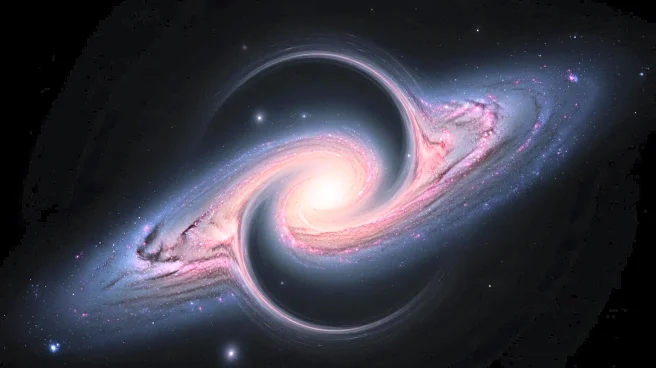What's Happening?
Recent scientific discussions have proposed the intriguing possibility that our universe might exist within a black hole. This theory draws parallels between the universe's characteristics and those of black holes, such as the presence of a singularity and an event horizon. The universe's expansion, where distant objects move away faster than closer ones, resembles the behavior of matter near a black hole's event horizon. The concept, while not mainstream, is supported by mathematical similarities between the universe and black holes, both described by Einstein's theory of general relativity. The idea suggests that black holes could spawn new universes, each with unique physical laws, a concept known as cosmological natural selection.
Why It's Important?
The theory that the universe might be inside a black hole challenges conventional cosmological models and could reshape our understanding of the cosmos. If proven, it would imply a natural direction or orientation within the universe, potentially affecting how galaxies and cosmic structures are perceived. This could lead to new insights into the fundamental nature of space-time and gravity. The exploration of such theories encourages advancements in physics, particularly in the quest to unify general relativity and quantum mechanics, which could unlock new scientific discoveries and technologies.
What's Next?
Further research is needed to explore the implications of this theory and identify observable consequences that could support or refute it. Physicists aim to develop a theory of quantum gravity to better understand singularities and the conditions inside black holes. This requires synthesizing general relativity and quantum mechanics, a challenge that has eluded scientists so far. Continued investigation into these concepts may lead to breakthroughs in cosmology and physics, potentially altering our perception of the universe.
Beyond the Headlines
The exploration of the universe as a black hole raises philosophical and ethical questions about our place in the cosmos. It challenges the notion of a unique universe and suggests a potentially infinite cycle of universes, each with distinct properties. This could influence cultural and scientific perspectives on existence and the nature of reality, prompting deeper inquiry into the origins and fate of the universe.










